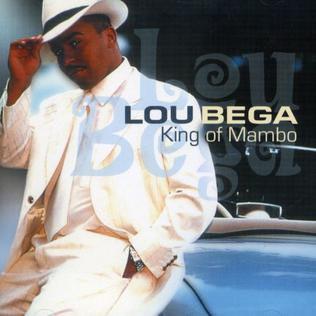Mambo is a genre of Cuban dance music pioneered by the charanga Arcaño y sus Maravillas in the late 1930s and later popularized in the big band style by Pérez Prado. It originated as a syncopated form of the danzón, known as danzón-mambo, with a final, improvised section, which incorporated the guajeos typical of son cubano. These guajeos became the essence of the genre when it was played by big bands, which did not perform the traditional sections of the danzón and instead leaned towards swing and jazz. By the late 1940s and early 1950s, mambo had become a "dance craze" in Mexico and the United States as its associated dance took over the East Coast thanks to Pérez Prado, Tito Puente, Tito Rodríguez and others. In the mid-1950s, a slower ballroom style, also derived from the danzón, cha-cha-cha, replaced mambo as the most popular dance genre in North America. Nonetheless, mambo continued to enjoy some degree of popularity into the 1960s and new derivative styles appeared, such as dengue; by the 1970s it had been largely incorporated into salsa.

Dámaso Pérez Prado was a Cuban bandleader, pianist, composer and arranger who popularized the mambo in the 1950s. His big band adaptation of the danzón-mambo proved to be a worldwide success with hits such as "Mambo No. 5", earning him the nickname "King of the Mambo". In 1955, Prado and his orchestra topped the charts in the US and UK with a mambo cover of Louiguy's "Cherry Pink ". He frequently made brief appearances in films, primarily of the rumberas genre, and his music was featured in films such as La Dolce Vita.

David Lubega Balemezi, better known by his stage name Lou Bega, is a German singer. His 1999 song "Mambo No. 5", a remake of Pérez Prado's 1949 instrumental piece, reached no. 1 in many European countries and was nominated for a Grammy Award. Bega added words to the song and sampled the original version extensively. Bega's musical signature sounds consist of combining musical elements of the 1940s and 1950s with modern beats and grooves.
"Mambo No. 5" is an instrumental mambo and jazz dance song originally composed and recorded by Cuban musician Dámaso Pérez Prado in 1949 and released the next year.

A Little Bit of Mambo is the debut album by Lou Bega released in 1999, propelled by the success of the single "Mambo No. 5 ".
Shaft are an English electronic music production duo, known for their covers and remixes of "(Mucho Mambo) Sway" and "Mambo Italiano". The former entered and peaked at number two on the UK Singles Chart in August 1999, then reached number one on New Zealand's Recorded Music NZ chart in December. They followed this with the release of "Mambo Italiano", which peaked at number twelve on the UK Singles Chart but ultimately did not replicate the success of the previous single. They went on to tour the world and win a gold disc for best performing group. Since then, they have recorded more songs such as "Kiri Riri Boom" and "Shake Seniora".

Totally Hits 2 is an album in the Totally Hits series. The album contains three Billboard Hot 100 number-one hits: "Maria Maria", "Genie in a Bottle", and "Amazed".

"Tricky, Tricky" is a song released by Lou Bega in 1999 from his debut album A Little Bit of Mambo. It became a modest hit in the USA and in Sweden, though was overshadowed by the smash-hit "Mambo No. 5". The lyrics tell of a woman that likes to spend a lot of money, and how the relationship between her and a man won't work.
Swimblack is a 1998 advertisement for Guinness-brand draught stout which was broadcast in the United Kingdom. It is the first in the Good things come to those who wait advertising campaign created by Abbott Mead Vickers BBDO who had won the Guinness account from Ogilvy & Mather in January 1998. The centrepiece of the Swimblack campaign is a 60-second television and cinema commercial written by Tom Carty, art directed by Walter Campbell and directed by Jonathan Glazer, which depicted an aging local sports hero's annual swimming race from an offshore buoy to his brother's seafront pub against the "clock" of pint of Guinness being "correctly" poured at the bar. The brother declares that the hero will "never lose" as the punchline of the commercial shows the brother starting the clock a little later each year. The ad was shot in the remote Italian village of Monopoli and used local villagers for the crowd scenes. The aims of the campaign were to promote Guinness in general, to turn around the negative consumer opinion of the length of time required to correctly pour a pint of Guinness from the tap, usually quoted as 119.5 seconds, and to encourage bartenders to take the time to do so.

"I Got a Girl" is a song by German singer Lou Bega. The single was the successor to his greatest hit "Mambo No. 5" and released as the second single from his debut album, A Little Bit of Mambo (1999). In the song, Bega tells that "he's got girlfriends all over the world." It was certified gold in Sweden.

"Mambo Mambo" is Lou Bega's fourth single from his album A Little Bit of Mambo. It became a hit only on the French singles chart where it peaked at #11 and was certified Silver, and in the Walloon singles chart where it peaked at #25.

Lounatic is the third studio album by Lou Bega, released in 2005. There are two versions of Lounatic: an earlier edition and a newer edition. They have slightly different track lists, each including 2 exclusive tracks, and slight mixing differences on some shared tracks. The single "Conchita" is labeled as "Mambo vs. Mozart" on the earlier track list. The album didn't chart in any official national music chart.

Syndicate Music Production was founded in 1993 by the German producer and songwriter Achim Kleist . In 1998, he was joined by partner Wolfgang von Webenau. The company's headquarters and studios are located near Munich (Germany), where productions and compositions for pop, rock, film and advertising are produced. Syndicate Musicproduction's biggest success was with the single "Mambo No.5" by Lou Bega and the follow-up album "A Little Bit Of Mambo". It went on to sell more than 20 million copies.

Ernest AnthonyPuente Jr., commonly known as TitoPuente, was an American musician, songwriter, bandleader, timbalero, and record producer. He composed dance-oriented mambo and Latin jazz music.

Mambo No. Sex is a 1999 album by German Eurodance band E-Rotic. Its name is a play on the popular song "Mambo No. 5" by Lou Bega, which was released seven months before this album.

"King of Mambo" is a compilation album by Lou Bega released in 2002. It includes songs from his previous albums "A Little Bit of Mambo'" and "Ladies and Gentlemen".

Free Again is the fourth album by German singer Lou Bega, released on 21 May 2010 in Germany, Austria and Switzerland. It has since been released in other countries.

The Latin Bit is an album by American jazz guitarist Grant Green featuring performances recorded in 1962 and released on the Blue Note label. It is a loose concept album inspired by Latin American music. It features tenor saxophonist Ike Quebec, pianists Sonny Clark and John Adriano Acea, bassist Wendell Marshall and percussionists Willie Bobo, Garvin Masseaux and “Patato” Valdes.

This is the discography of German singer Lou Bega.














